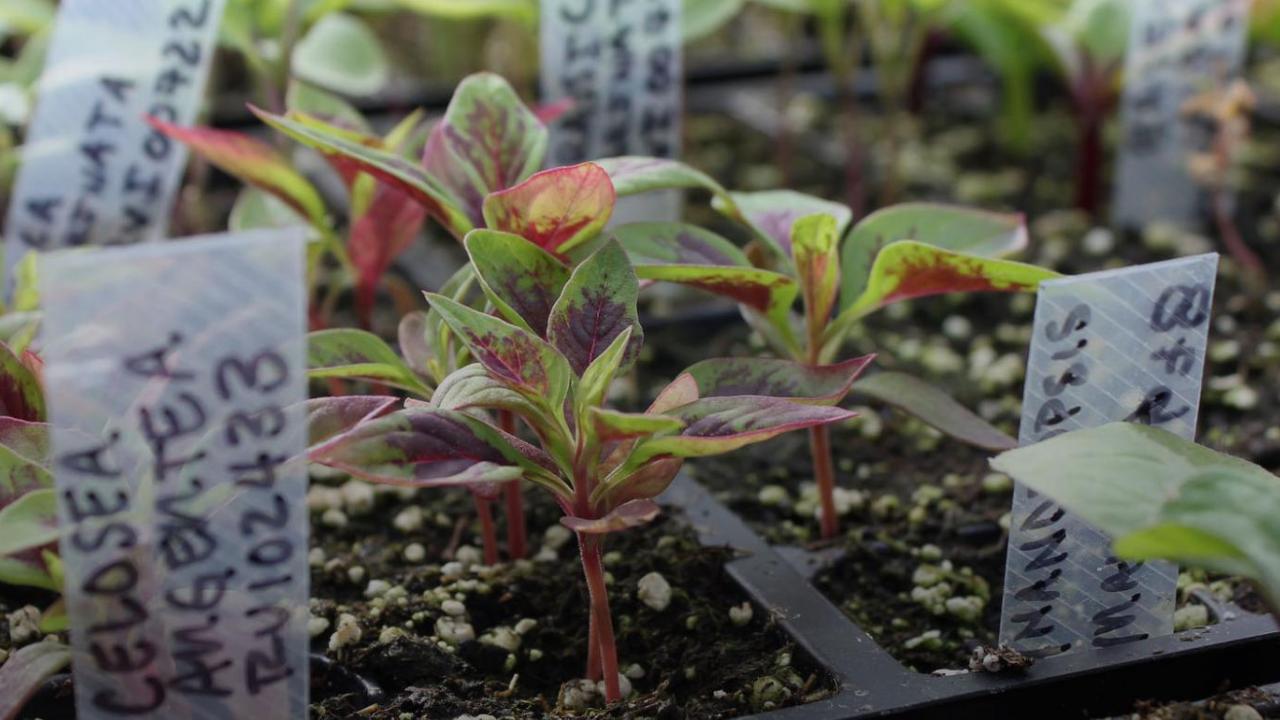
UC Davis to Close Feed the Future Innovation Labs Amid Loss in USAID Funding
For more than a decade, the Feed the Future Innovation Labs at UC Davis have strengthened America’s leadership in agricultural innovation and reduced global hunger and malnutrition by empowering people in low-income regions worldwide. In response to recent funding decisions made at the federal level, UC Davis will suspend operations of its final two Feed the Future Innovation Labs by the end of April 2025. The campus is exploring all methods for restoring federal funding for these labs and continuing this important work.
In partnership with the U.S. Agency for International Development (USAID), the innovation labs focused on advancing agricultural science and disease resistance, boosting incomes and nutrition, and building resilience and agricultural growth among rural families.
In late January, the Feed the Future Innovation Lab for Markets, Risk and Resilience (MRR), and the Horticulture Innovation Lab, along with several other international projects, received stop-work orders from the federal administration. MRR was formally terminated in February, just five months before the end of its grant cycle. Nearly 95% of the allocated funds had already been spent on research projects. While some projects reached completion, several projects were unable to finalize data collection.
Established under USAID’s Title XII authority – the Famine Prevention and Freedom from Hunger Amendment (1975) to the Foreign Assistance Act – MRR represented the latest phase of the BASIS (Building Assets and Strengthening Input Market Systems) research program, which has supported agricultural development since 1996. MRR supported the work of researchers at 21 American universities and 22 international universities.
“Research by the MRR Lab has established that risk and climate shocks not only inhibit agricultural growth but also trap people in chronic poverty,” said Michael Carter, distinguished professor of agricultural resource economics and director of the lab. “Among our contributions, the lab has brought advancements in satellite technology and contract design to private insurers, helping them put farming families on a path to a more productive and self-reliant future.”
Originally scheduled to operate through fall 2026, the Horticulture Innovation Lab will also conclude earlier than planned following recent federal budget actions. Launched in 2009 under the U.S. Government’s global hunger and food security Feed the Future initiative, the Horticulture Innovation Lab has brought UC Davis faculty expertise and student engagement to the global arena. The lab advanced access to affordable and healthy fruits and vegetables and introduced new innovations for improved livelihoods for farmers globally. The Horticulture Lab supported 34 subawards and 160 researchers.
"Over the past 16 years, we've built something truly special," said Erin McGuire, director of the Horticulture Innovation Lab. "Our network of researchers, farmers, students and partners were in the middle of generating solutions that will continue to benefit both global and domestic agriculture. We hope these partnerships continue in other ways to advance critical research in fruits and vegetables.”
Since the launch of the innovation labs in 2010, UC Davis has played an advanced role in applying research for global agricultural development, addressing critical challenges in food security, nutrition and economic resilience.
At one point, the university was home to five Feed the Future Innovation Labs, which have contributed to the success and resilience of communities in the United States and around the world through research and outreach by:
- Increasing the resilience of smallholder farmers in Africa and Asia
- Testing and releasing new varieties of drought-resistant vegetable crops
- Establishing new frontiers in opportunity crops
- Improving poultry genetics for Newcastle disease resistance and heat tolerance
- Training thousands of farmers, entrepreneurs, officials and graduate students across the globe
Establishing Index-Based Livestock Insurance in the Horn of Africa - Creating the DryCard™, an affordable tool to assess food-drying safety for storage
“The Feed the Future Innovation Labs have made lasting contributions to global food security,” said Ermias Kebreab, associate dean of Global Engagement for the College of Agricultural and Environmental Sciences. “While their suspension is disappointing, the research and partnerships they built will continue to benefit agricultural communities worldwide.”
Media Resources
- Caren Weintraub, College of Agricultural and Environmental Sciences, crweintraub@ucdavis.edu
- Bill Kisliuk, News and Media Relations, bkisliuk@ucdavis.edu